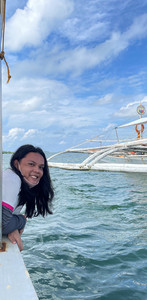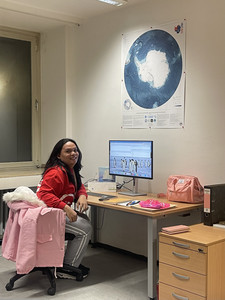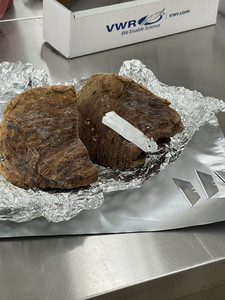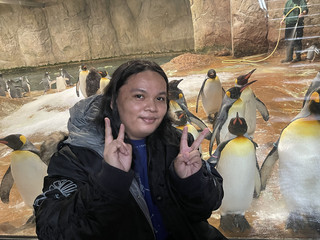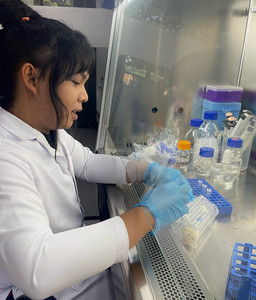Raven Quilestino-Olario was awarded one of the two scholarships of the German Academic Exchange Service (DAAD) in its Graduate School Scholarship Programme (GSSP) for the GSGS in 2024. We caught up with them to talk about themself, their arrival in Germany, their project and the selection process. Raven, who is originally from the Philippines and grew up in the southern city of Davao, has a bachelor’s degree in geosciences and a master’s degree in environmental sciences. They specialised in marine geosciences. During their MSc, they worked on a national project to detect marine heat waves in the country, which deepened this focus.
They told us about their arrival in Germany and the difference in climate to the Philippines: 'I am originally from the Philippines, specifically in the southern city of Davao, which is, I believe, a tropical climate, quite different. From when I arrived here in Germany, I think it was the 2nd of December in 2024. I left our country at around 40°C. And I arrived here at like 4°C.' As well as settling into a new city, Raven is now in a new academic environment. When asked how their transition has been, they replied: 'The transition was very smooth, I consider myself very lucky to be surrounded by very supportive supervisors, colleagues, and even the members of the faculty and the Institute.' They go on to say that their supervisors have provided them with their own office, a PC and 'basically everything that I need to have a great start with my PhD journey'. The university initially provided them with accommodation until they found something of their own, to give them time to settle in. When they arrived, the Christmas markets were open, which was their first destination. By the day of the interview, Raven had already visited many German cities.
They described their first impression of the university campus as beautiful and historic. As for the research environment, they said that they were 'really blown away' by the laboratory and the equipment available, which they had only read about.
It has always been their dream to work in Antarctica one day, but they feel that their options and opportunities are limited. They know that in order to pursue their dream, they need to look at other options. They feel that a PhD would be a good place to start. During their PhD they are looking forward to applying and extending their knowledge and to focus more on Antarctic science.
The motivation for applying for the GSSP scholarship was that it provides all the essentials for prospective students, such as monthly allowance, health insurance and the necessary language preparation course. Raven mentions that it is very structured in itself so that applicants do not get confused and can just follow the predetermined steps. Another thing that motivated them personally was last year’s research project in the Antarctic working group.
After their PhD, they hope to obtain a postdoctoral fellowship. When asked about their long-term goals, they say that they are interested in working groups that specialise in the Antarctic Circle. They hope to be awarded a fellowship following their PhD and 'publish very meaningful papers and hopefully be able to see penguins in Antarctica'.
The working title of Raven’s research project is 'The East Antarctic coastal ice system and its past to present responses to marine thermal anomalies'. Marine thermal anomalies are exceedances of sea surface temperatures that are either very warm, such as marine heat waves, or very cold, such as marine cold spells. They have varying effects on marine ecosystems, but most are negative. As this is one of the newest areas of extreme event research, Raven would like to work on it and further investigate how they might affect ocean-climate factors.
Their impression of the selection process for the GSSP fellowship was that it took some time. It was 'quite long and really nerve-wracking'. But Raven says they really liked that the process was well-structured. There was a set schedule for the months, which gave a good overview of what was coming up and when things had to be submitted. 'As long as you manage to comply with the necessary requirements, then everything else is just like smooth sailing.'
Raven has 2 pieces of advice for future applicants. Just go for it if you want to apply. They believe that small steps are better than a life full of 'what ifs'. The second piece of advice is to never lose hope. This is not their first application and their first attempt to get a scholarship. They received many rejections and were sad at first. It made them improvise their applications. To improve their view on life itself and how the rejection was justified. 'Hopefully your time and opportunity will come.'
